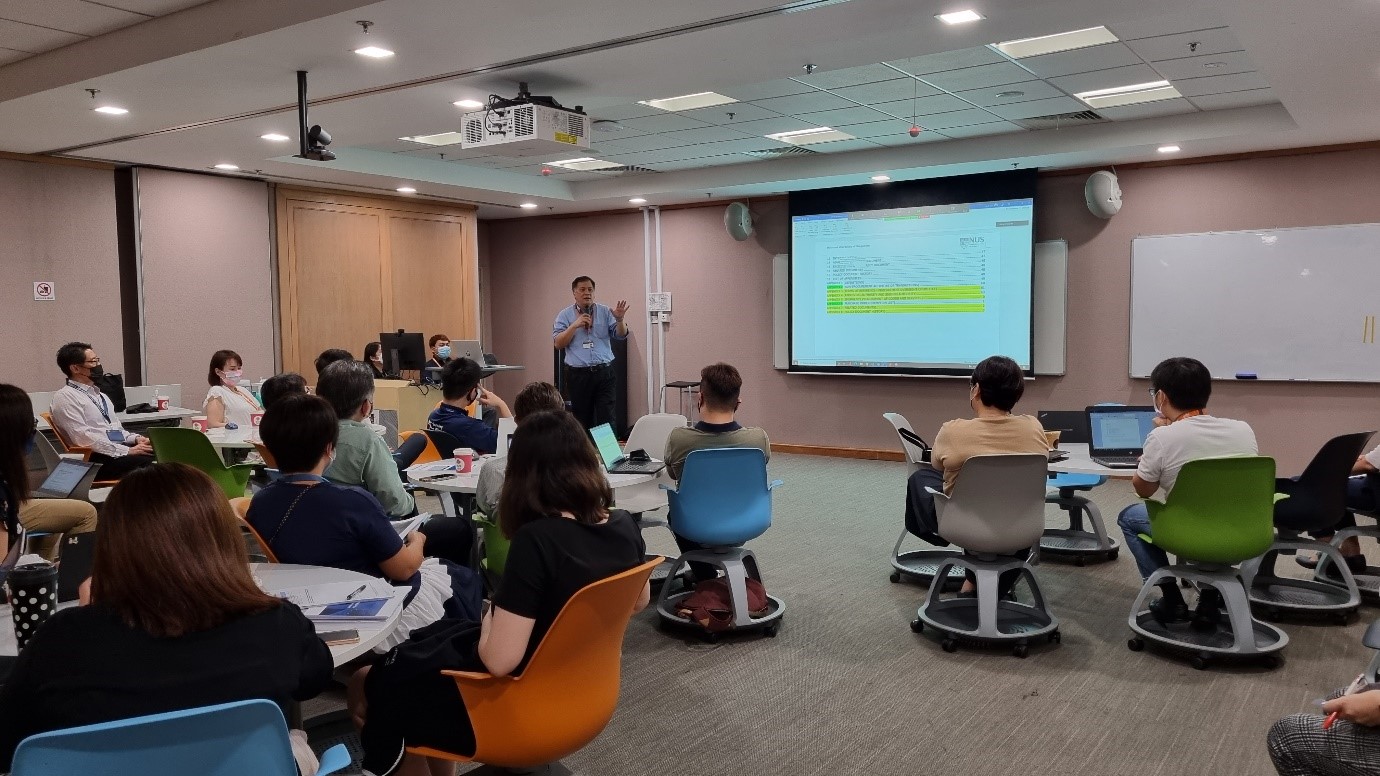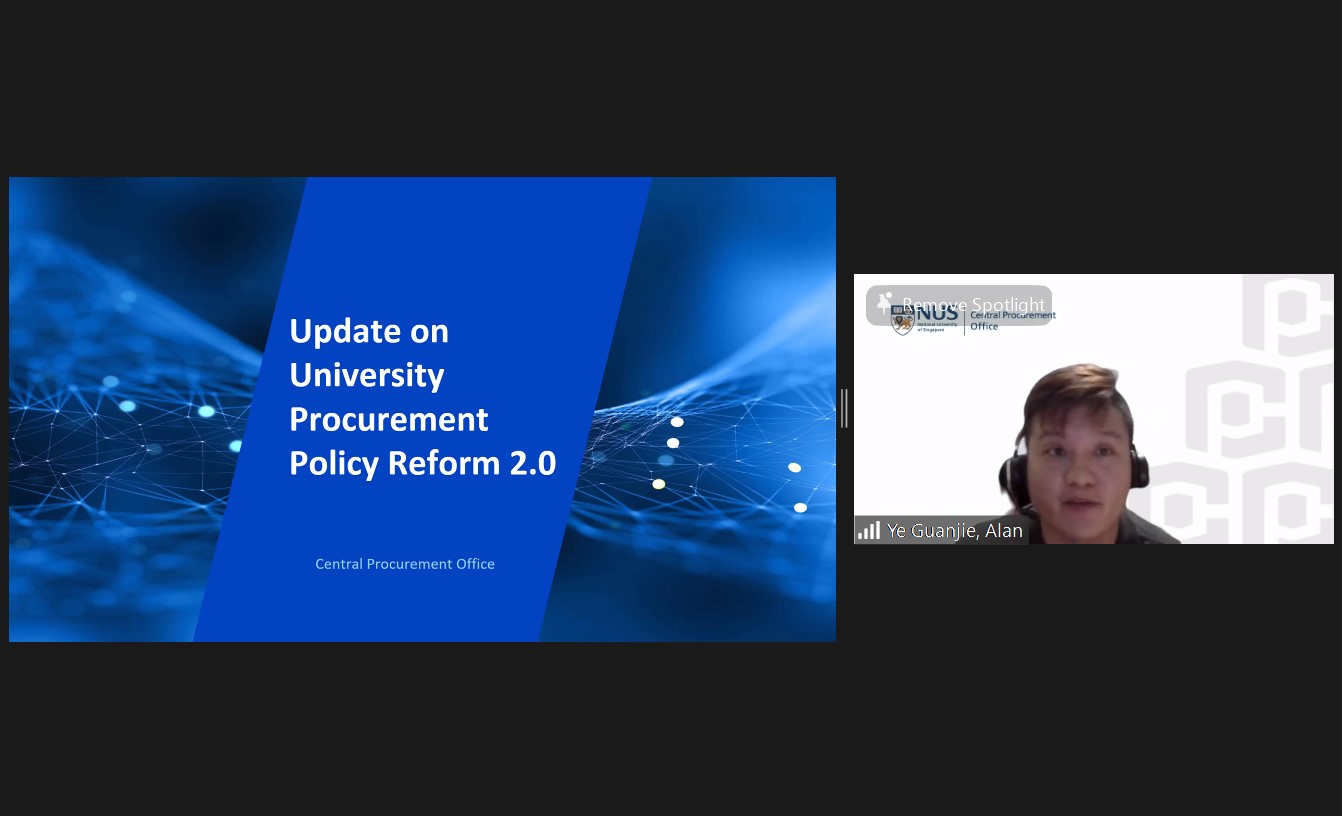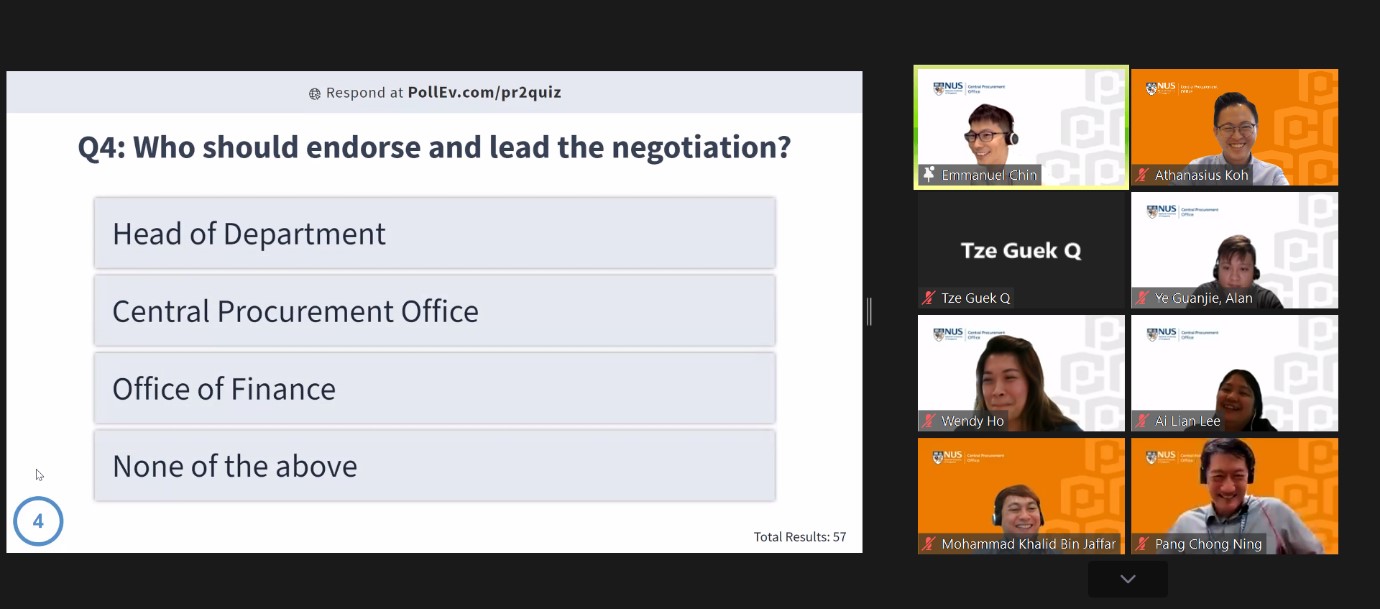The Central Procurement Office (CPO) has long heard that the University Procurement Policy (UPP) is a difficult document to comprehend, where described procurement processes often pose a challenge to users when carried out. This led to the Procurement Reform 2.0 exercise in 2021, where key stakeholders pointed out over 150 pain points for improvement, eventually resulting in the re-engineering of 12 processes.

The revised University Procurement Policy (UPP) took effect from 30 June 2022, presenting CPO with the opportunity to mount a comprehensive change management campaign to refresh CPO’s brand identity, raise awareness of key changes, and engage with their stakeholders across the University.
The decision to refresh CPO’s branding arose from the need to establish an identity that symbolised the unit’s mission to engage and simplify. With the advice of the Organisational Excellence Transformation Unit (OETU), a corporate NUS co-branded logo was created, together with a simple design system that could be applied to the website, circulars, and design collaterals such as virtual backgrounds, banners and infographics. The one-stop procurement repository Proctor was updated to address user feedback about how information was hard to access, accompanied by a repackaging of CPO’s circulars as The Proctor Press for better readability.
With this new brand in place, the combined CPO and OETU team next embarked on the socialisation of the updated UPP. 11 briefing sessions were organised for 1173 participants, with Procurement Business Partners (BP) leading the sessions for their respective clusters. This approach was selected as BPs knew their clusters best and could be empowered to customise the briefing sessions’ content to suit the needs of the clusters they serve.
 Associate Director Mr Tan Chee Koon addressed BPs during the Pre-Brief/Training Sessions for Business Partners.
Associate Director Mr Tan Chee Koon addressed BPs during the Pre-Brief/Training Sessions for Business Partners.
Mr Alan Ye, BP for the University Administration & Residential Colleges, said, “I think it was a good experience to share the policy changes introduced under PR2.0 with the admin cluster and it also allowed me to familiarise myself with the changes as well. This helped me to address follow-up queries from the departments in a timely manner. I hope that with the changes brought about by PR2.0, staff will find procurement work more seamless and enjoyable.”
 Mr Alan Ye led an online briefing session.
Mr Alan Ye led an online briefing session.
Such sentiments resonated with the participants in the briefing sessions, 90% of whom expressed that the sessions helped them to better understand the key changes in the new policy, and 73% of whom felt the changes were beneficial and would allow them to carry out their work in procurement more effectively. The incorporation of short quizzes and prizes as part of the briefing sessions also worked to keep participants engaged and assess knowledge retention.
 The quizzes carried out during the briefing sessions helped to assess participants’ knowledge retention rate.
The quizzes carried out during the briefing sessions helped to assess participants’ knowledge retention rate.
With the new UPP in place, CPO will now be concentrating on the implementation of Smartbuy, the new digital procurement platform, in 2023.